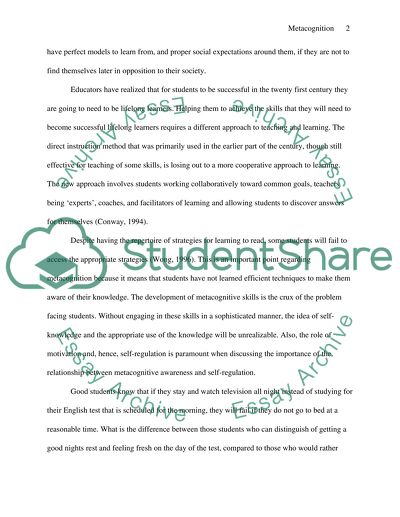Cite this document
(“Metacognition Essay Example | Topics and Well Written Essays - 1500 words”, n.d.)
Retrieved from https://studentshare.org/psychology/1499168-metacognition
Retrieved from https://studentshare.org/psychology/1499168-metacognition
(Metacognition Essay Example | Topics and Well Written Essays - 1500 Words)
https://studentshare.org/psychology/1499168-metacognition.
https://studentshare.org/psychology/1499168-metacognition.
“Metacognition Essay Example | Topics and Well Written Essays - 1500 Words”, n.d. https://studentshare.org/psychology/1499168-metacognition.


